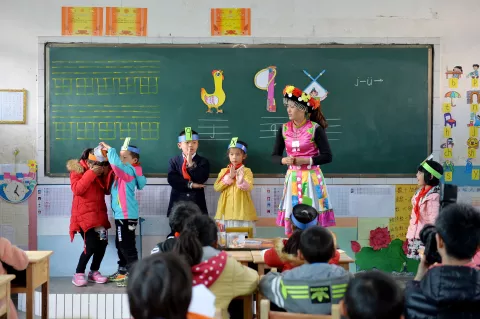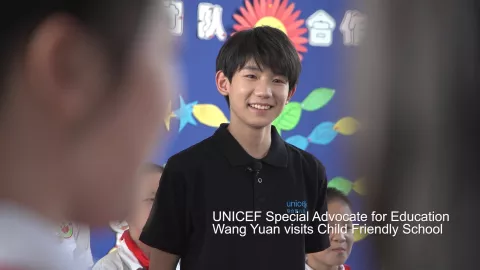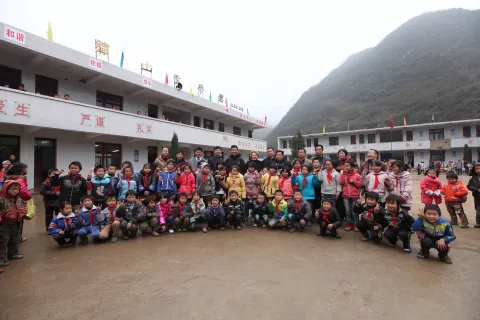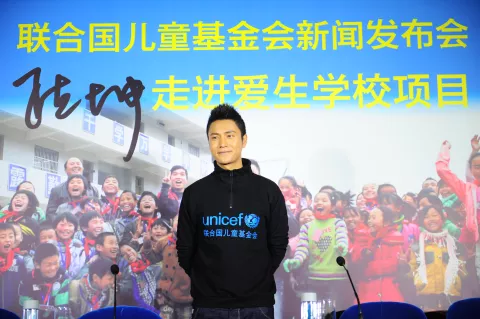UNICEF China Photo Essay on ED’s Field visit to Yunnan
Child-Friendly Schools
- Available in:
- 中文
- English
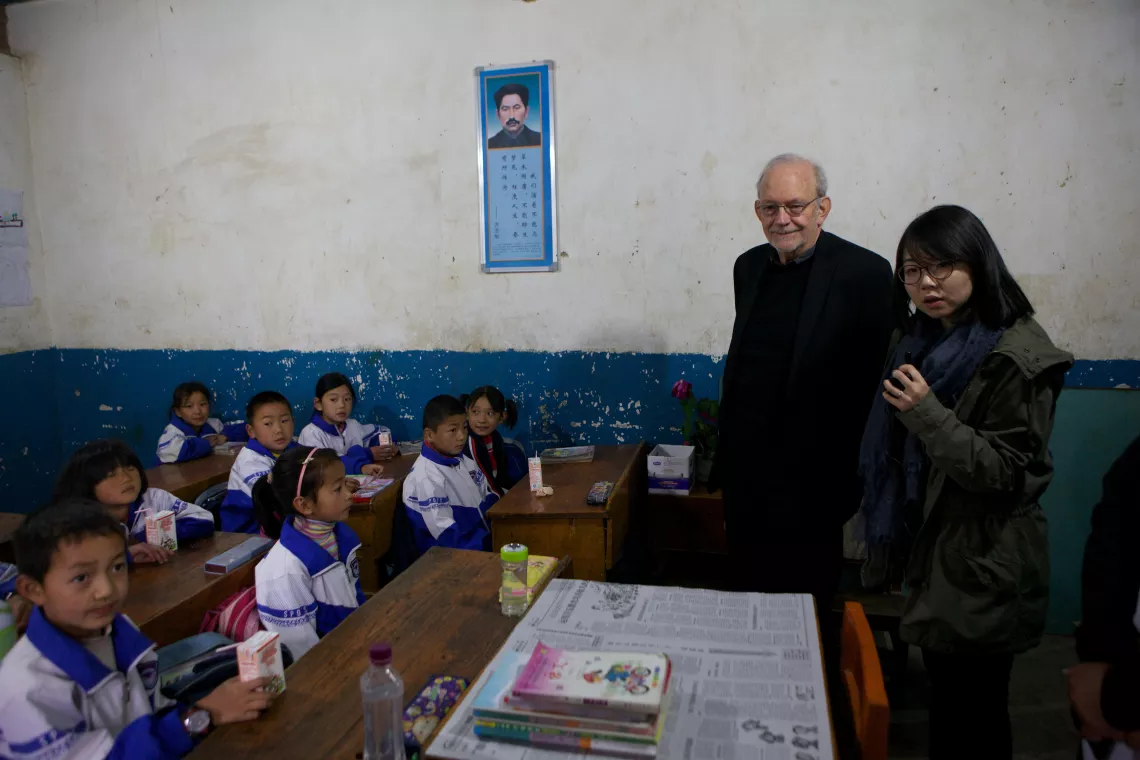
UNICEF Executive Director Anthony Lake greets students in Baila Primary School, in Jianchuan County, Yunnan Province, China in May 2014. The school, situated in mountainous area, has 45 students and five teachers. Mr. Lake had the opportunity to see the impact of the Government working with UNICEF’s support, to reach children in remote, poor and ethnic minority areas.
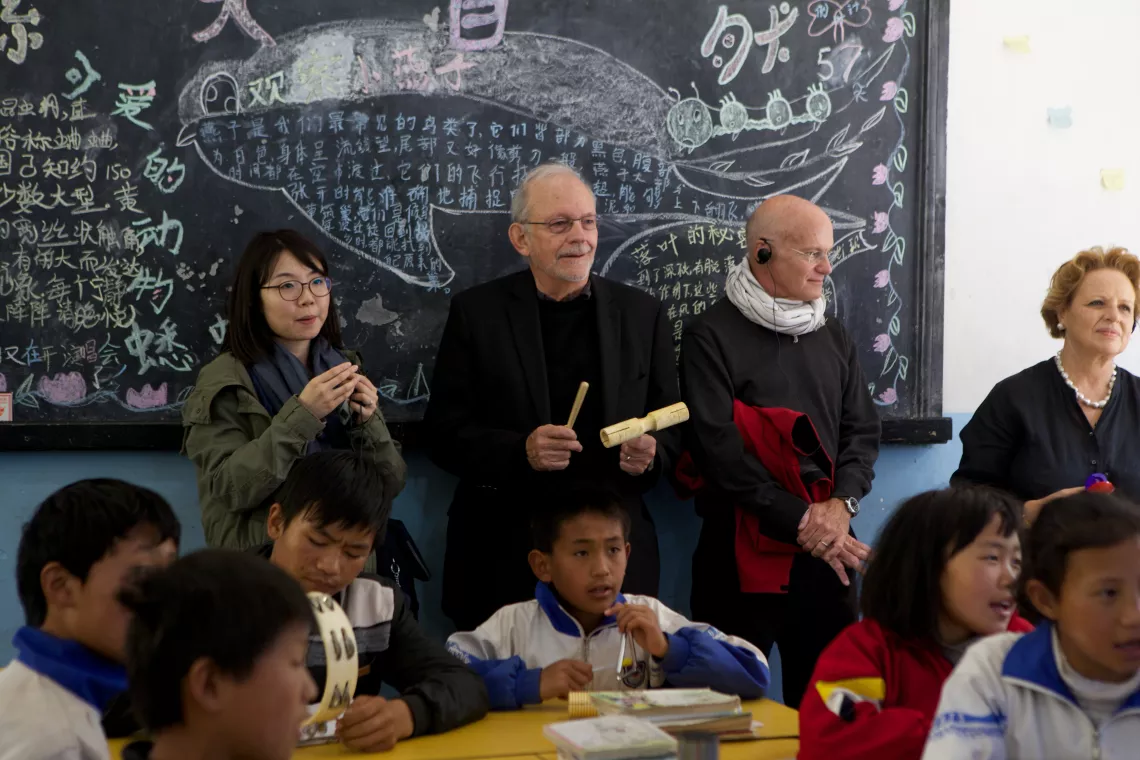
Mr. Lake (2nd rear L), Daniel Toole (2nd rear R), UNICEF Regional Director for East Asia and the Pacific, Gillian Mellsop (1st rear R), UNICEF Representative to China participate in a music lesson in Mixin Primary School, Yunnan Province.
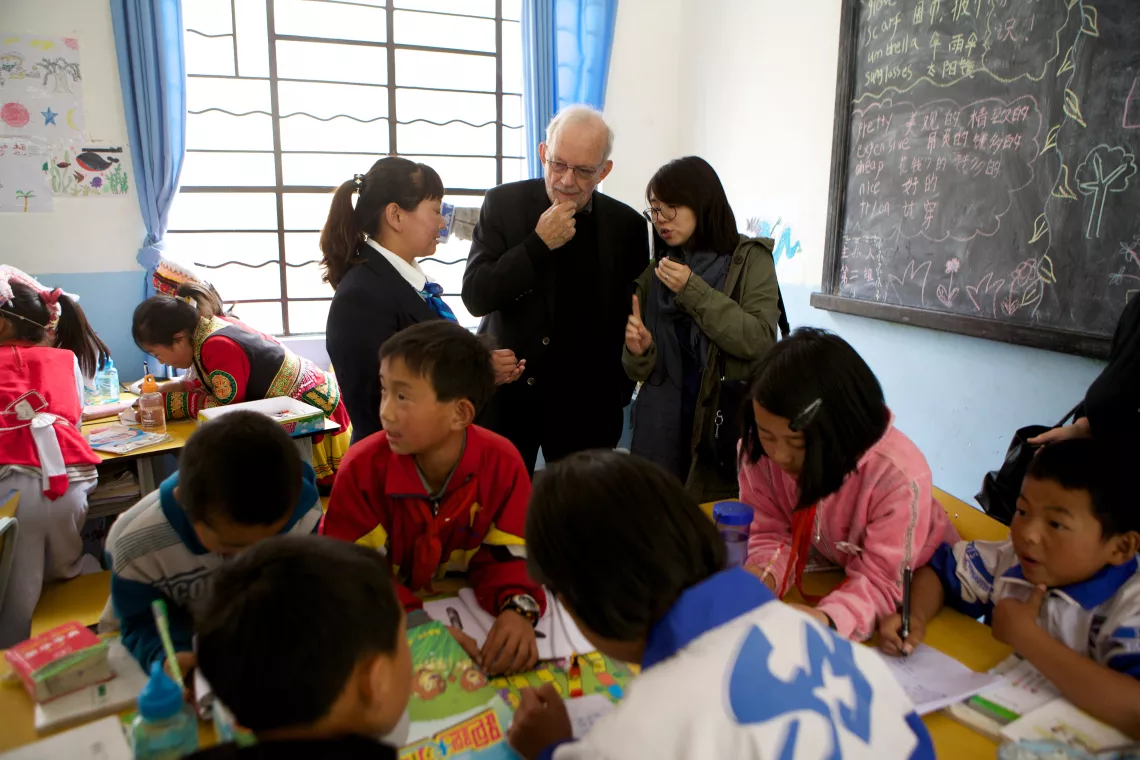
A teacher introduces to Mr. Lake the general information of students in Mixin Primary School. Baila and Mixin are the examples of 250 child friendly pilot schools, in which Ministry of Education, with UNICEF support, is working to test a new model that incorporates Social Emotional Learning through participatory teaching, making the school environmental friendly with sanitation and water facilities as well as strengthening school management.
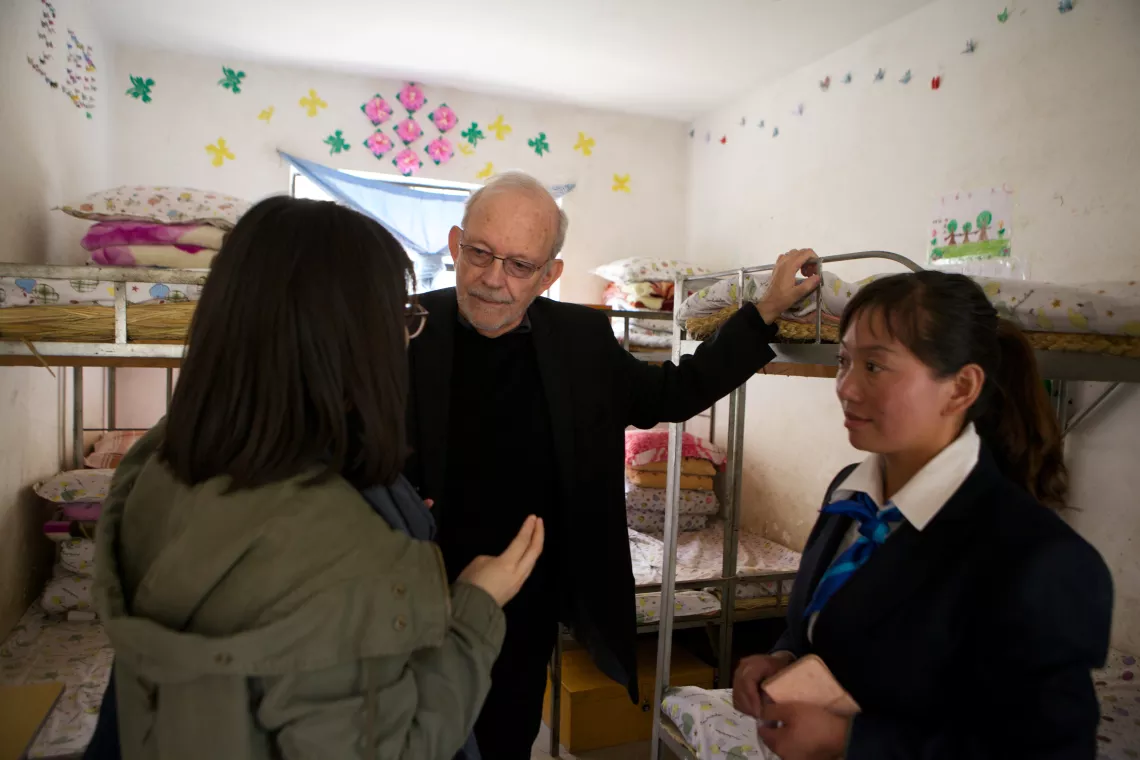
A teacher introduces students’ boarding school life to Mr. Lake, in Mixin Primary School. Mixin Primary School, founded in 1912 and lies in mountainous area, serves 18 surrounding villages of five minority nationalities.
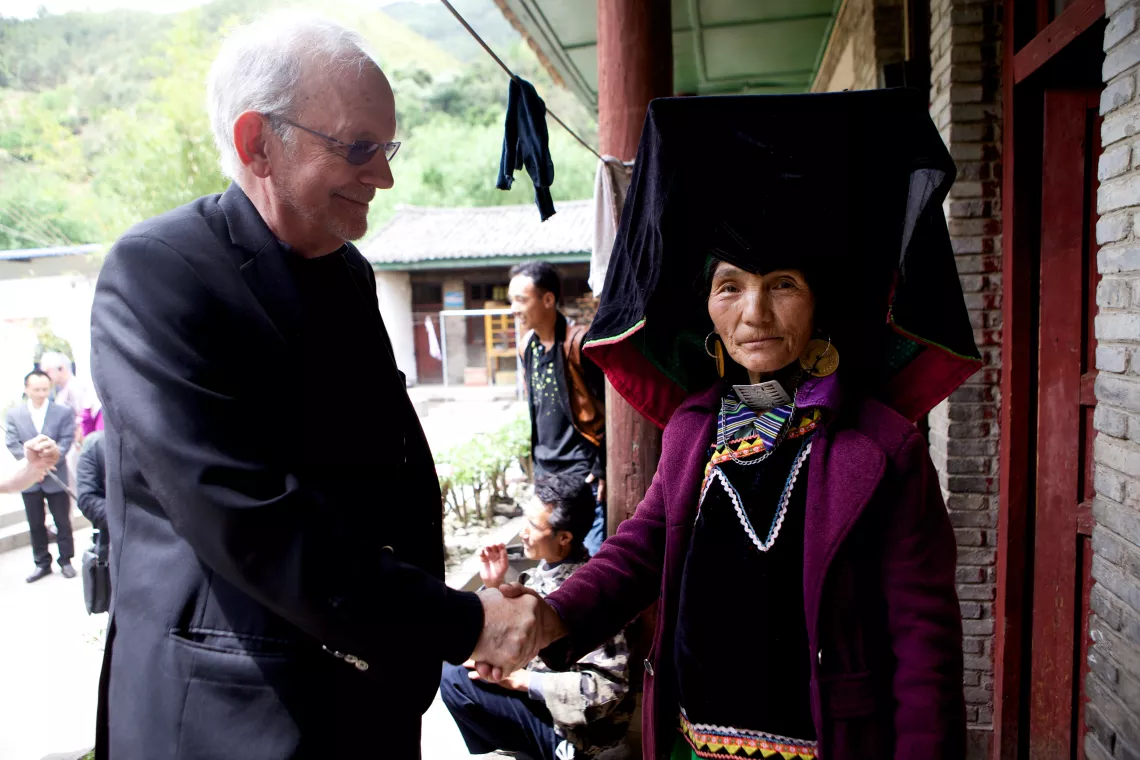
Yang Jianjia, the 64 year old grandmother from the Bai ethnic group who looks after 10 young children who, come every week from mountainous villages to attend the small kindergarten set up by and paid for the community. She explained to Mr. Lake that she does it because she wants her grandchildren to speak Mandarin and get educated.
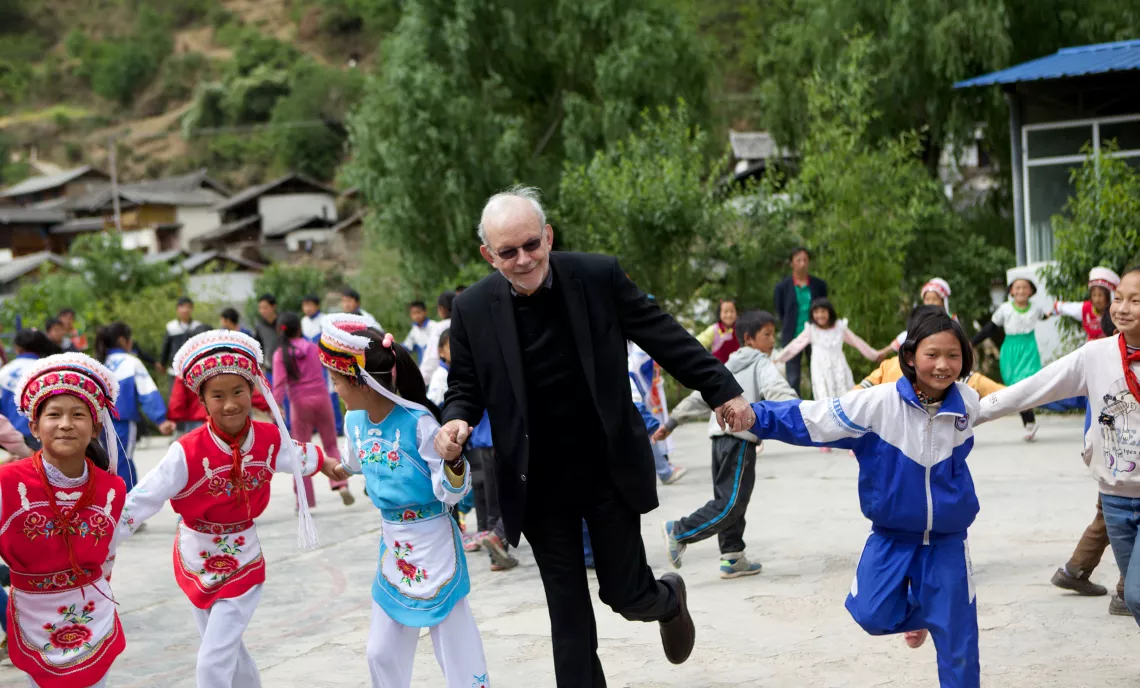
Students dance with Mr. Lake in Mixin Primary School.
“The school has changed a lot, especially since we have become a child friendly school and with the introduction of social emotional learning.“
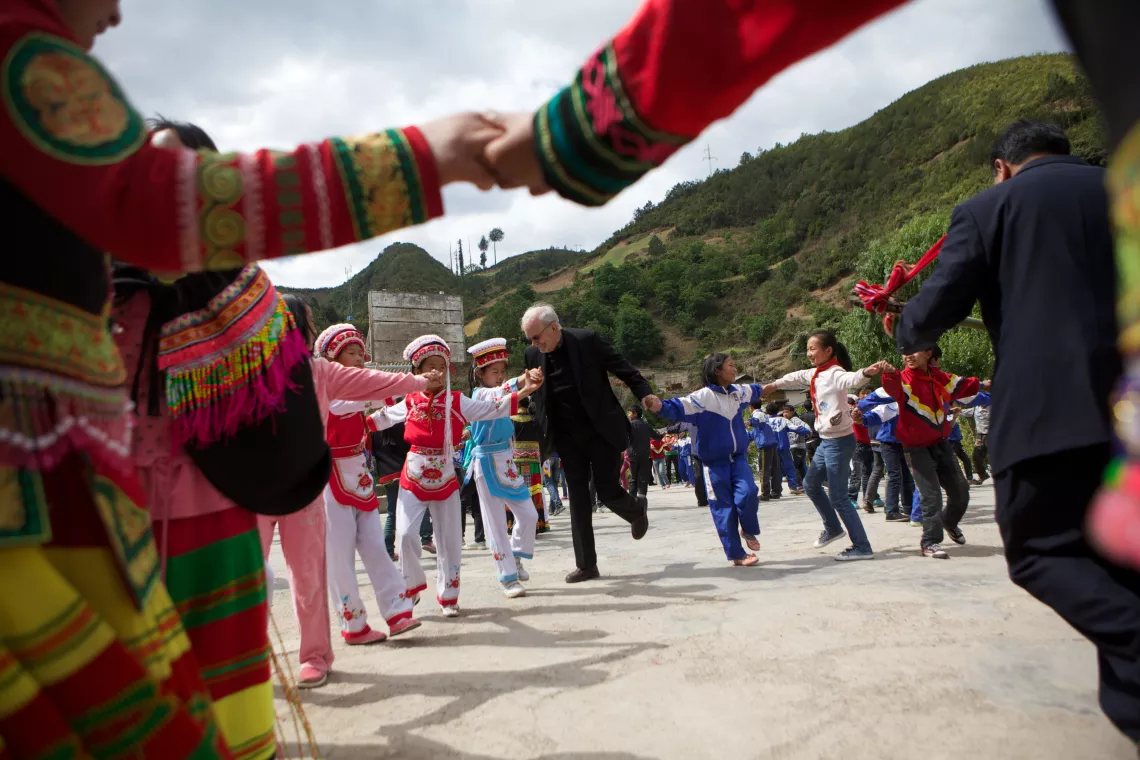
According to the 2010 consensus, the number of children living in rural poverty-stricken areas was estimated to be 70 million, accounting for about 25 per cent of the child population nationwide. Children in these areas lagged behind other children in terms of health, enrolment in or completion of education, and access to household water and sanitation.
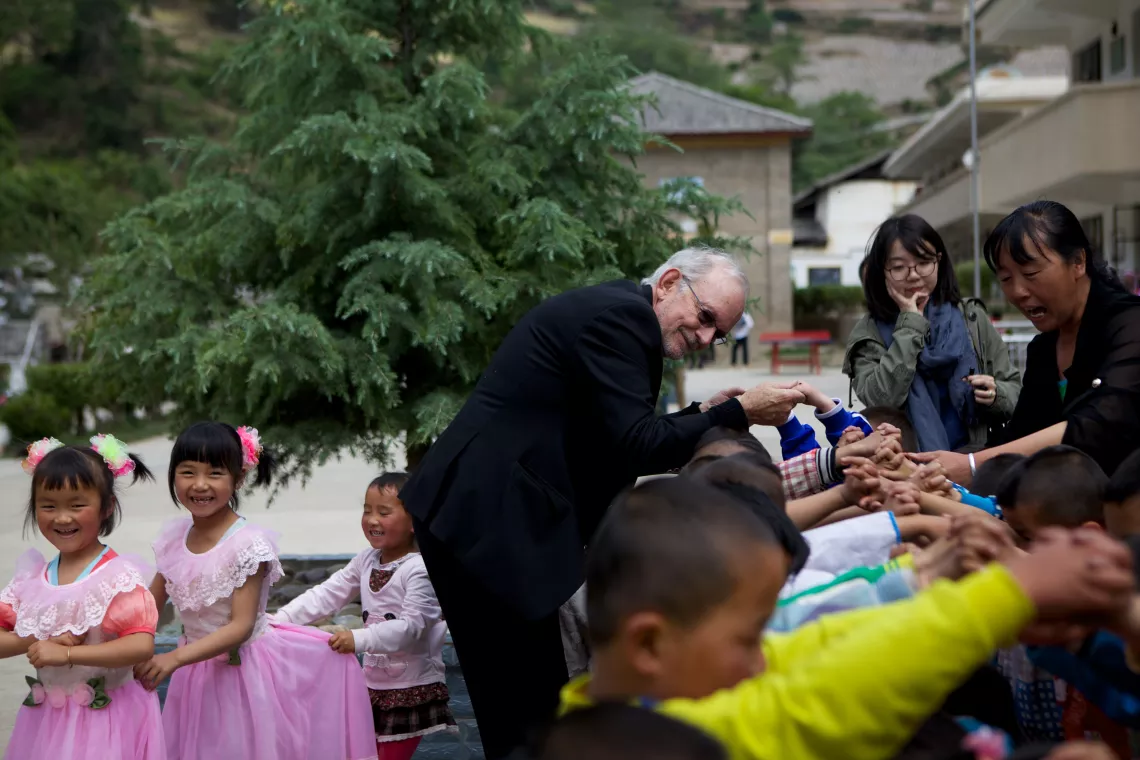
Students play games with Mr. Lake in Mixin Primary School. Already the Government has adopted National Child Friendly School Standards. Social emotional learning, as a key component of this model, and with its focus on play and interactive teaching, is now also expected to be scaled up to other schools in China by 2015. To support the roll out to schools in other poor and remote areas, UNICEF is working with the Ministry of Education to develop teaching and learning materials so teachers are better equipped with the right skills and the quality of learning for students improves.
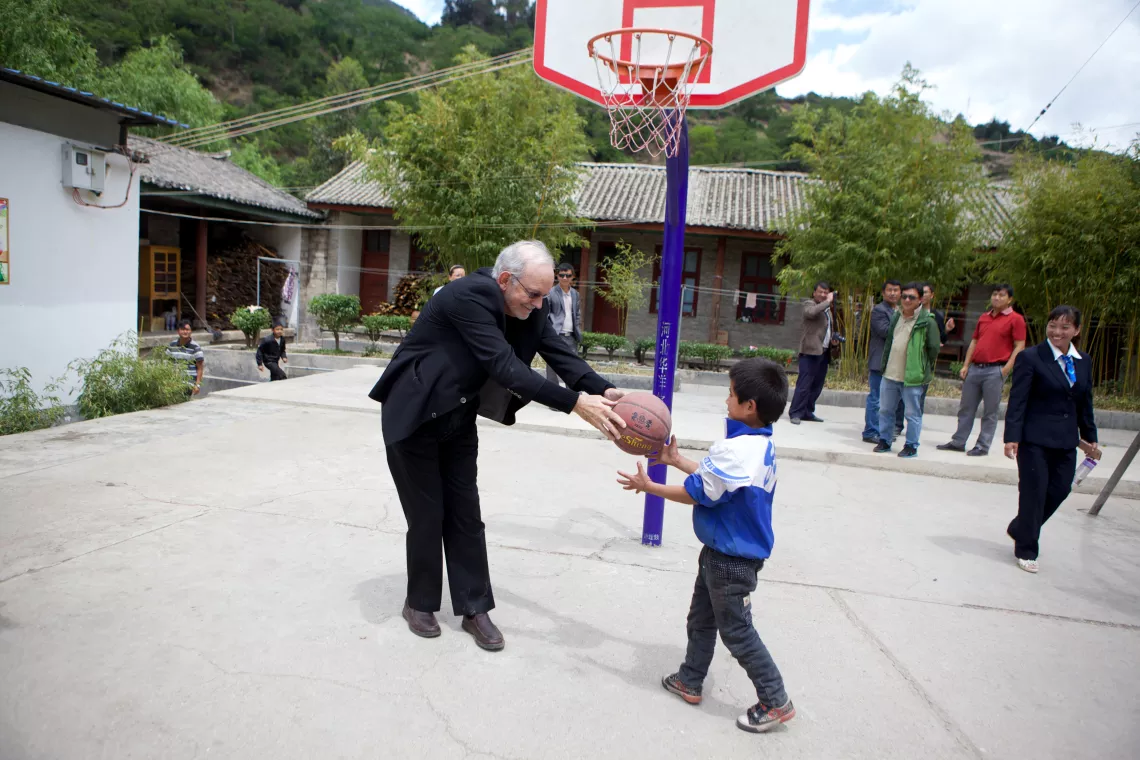
Mr. Lake plays basketball with a student in Mixin primary School.
“Together we can test what works and what doesn’t work and then the Government can take these initiatives to scale. This process can improve the lives of millions and millions of children.”


